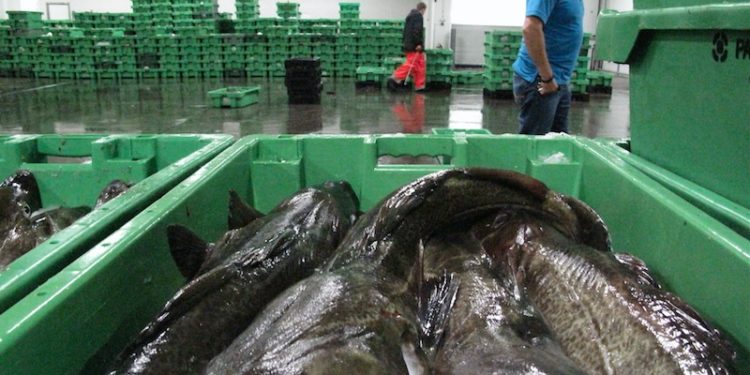The Danish Ministry of Foreign Affairs has set out the findings of its analysis of possible consequences for Danish fisheries as a result of Britains EU withdrawal, confirming that it may have negative effects on fisheries and processing.
The Institute of Food and Resource Economics at the University of Copenhagen (IFRO) prepared the analysis a the request of the Ministry of Environment and Food.
It has concluded that there may be significant consequences for those vessels that operate mainly in UK waters if Britain chooses to exclude them or limit access, leading to significantly reduced supplies of mackerel, herring and industrial species, which may also affect the economic situation of the processing industry.
‘The government has said from the outset that Danish fisheries may be among the industries most affected by Brexit. The analysis confirms this,’ said Minister for Fisheries Karen Ellemann.
‘The results of the analysis are not surprising. Both fish and fishermen move across borders. Therefore, the EU has made the fisheries policy a common concern. Denmark has long traditions for fishing throughout the North Sea, where Britain has a large share of waters. Therefore, Britain’s decision to withdraw from the EU could have significant effects on Danish fisheries and processing.’
The analysis shows that Danish fishermen between 2012 and 2016 landed values R03;R03;from DKK0.7-1.0 billion annually from UK waters, equivalent to 34% of annual Danish landing values and up to 45% of catch volumes.
The report suggests that if access to Britain’s waters is cut off, this would have the greatest consequences for herring and mackerel fisheries, as well as industrial fisheries that include sandeel and sperling.
It states that there a relatively limited number of vessels would be affected by Brexit, but these are responsible for large quantities and high values.
‘We do not yet know Britain’s position,’ Karen Ellemann said. ‘The actual consequences will ultimately depend on the agreement on the future relationship between the EU and the UK. Securing Danish fishing interests is an important priority for the government. We are working with the other affected countries to maintain our fishing opportunities and access to British waters. We naturally hope for a good future co-operation on fisheries and with sustainable management of common stocks between the EU and Britain.’
The report The economic consequences for the Danish fishery following the United Kingdom’s decision to leave the European Union from the Department of Food and Resource Economics at the University of Copenhagen (IFRO) can be found here
Another analysis has been commissioned from Innovative Fisheries Management (IFM) at Aalborg University. This will be a socio-economic analysis for the largest Danish fishing ports, Skagen, Hirtshals, Thyborøn and Hanstholm, on the consequences of Brexit.









